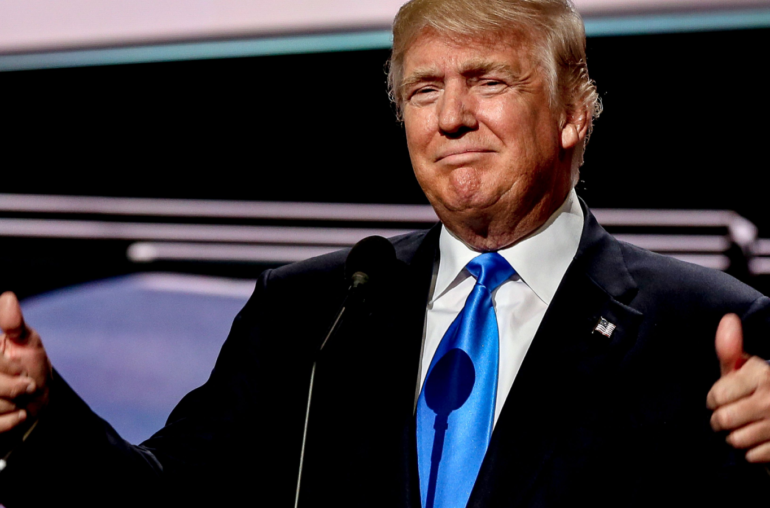We use cookies and other tracking technologies to improve your browsing experience on our site, show personalized content and targeted ads, analyze site traffic, and understand where our audiences come from. To learn more or opt-out, read our Cookie Policy. Please also read our Privacy Notice and Terms of Use, which became effective December 20, 2019.
By choosing I Accept, you consent to our use of cookies and other tracking technologies.
Filed under:
But is there any reason to do it?
Textbook publisher Pearson suggests blockchain tech could let it take a cut of secondary textbook sales, capturing a section of the book market that’s so far escaped it. As quoted by Bloomberg, Pearson CEO Andy Bird believes non-fungible tokens, or NFTs, could help publishers make money off textbook resales, although he stopped short of describing concrete plans.
“In the analog world, a Pearson textbook was resold up to seven times, and we would only participate in the first sale,” said Bird after the company announced its latest quarterly earnings this week. “The move to digital helps diminish the secondary market, and technology like blockchain and NFTs allows us to participate in every sale of that particular item as it goes through its life.” Bloomberg suggests this would mean letting buyers resell ebooks, something that’s so far been a rarity in the publishing world.
It’s not clear how, when, or if NFTs might show up in Pearson’s catalog. But they could mark a new stage in a long-standing publishing war. Thanks to legal concepts like the first-sale doctrine, physical book buyers typically own the media they’ve purchased outright, and they’re allowed to sell it without the original publishers making money. But ebooks have complicated that calculus. Any digital transfer creates a new “copy” of the work, and third-party secondhand ebook sales (along with other secondhand digital media sales) have faced serious legal challenges as a result.
That’s historically given physical books a built-in advantage for students, who can buy or sell them secondhand to defray their often extraordinary upfront costs — without the publishers taking any of that money. Allowing ebook resales could make that advantage less dramatic.
As with many mainstream crypto applications, NFTs don’t bring an obvious technical innovation to this question. Bird talks up the way crypto ledgers track an item’s ownership from “owner A to owner B to owner C,” but this has always been possible using a digital database. A blockchain offers a decentralized version of that database, but the odds of Pearson using a fully decentralized, open system are approximately zero. It would almost certainly extend an existing copy protection scheme to stop non-NFT owners from pirating its books. That would make the NFT a fig leaf on top of an old-fashioned digital rights management or DRM framework. NFTs can theoretically be sold on third-party markets that aren’t approved by the creator, but big companies like Ubisoft certainly haven’t followed that principle, and Pearson may not either.
NFTs have had a real impact on the media world. But they’ve mostly operated as a kind of digital tote bag — something fans buy to support and feel closer to a favorite creator. (Fandom is a strange world, but I feel comfortable suggesting nobody really loves their textbook publisher.) Sometimes they grant access to social spaces like Discord channels or voting rights on a platform like Snapshot, but that’s most useful for indie publishers and authors who don’t already have a massive digital platform. Most NFTs quite infamously don’t control who can see a specific work — only who “owns” a token corresponding to it, and even that is often confusing.
Nothing prevents Pearson or any other major publisher from letting people sell ebook licenses using non-crypto DRM. In fact, third-party sellers like Tom Kabinet and ReDigi have been trying to create digital secondhand markets for years. But publishers have been generally hesitant to open the door to digital resales, especially as they’re trialing methods that give book buyers even less control, including subscription services like Pearson Plus — which Bird described glowingly during the earnings call.
So what’s changed? Possibly nothing. Pearson hasn’t committed to NFT textbooks, and Bird doesn’t lose anything by spitballing about the future value of a buzzy (if recently flatlined) new technology. A cut of a resold textbook is probably still less lucrative for Pearson than the subscription model it currently favors. But NFTs do seem to have a psychological effect — they make people feel like they own something, even if the ownership is fairly abstract. Textbook makers might see this as an opportunity to push digital markets in a new direction.
This might be a mixed bag for students. On one hand, some resale opportunity is better than none — which is what people often get with ebooks. On the other, a publisher-controlled resale market will almost certainly be tilted to favor the publisher. Library ebooks have self-destruct conditions that require buying new copies after a certain number of checkouts, for instance, and an NFT ebook could have a similarly limited number of resales. On a more abstract level, it short-circuits a real legal debate over whether people should have the right to control their digital purchases. And it adds yet another incentive for publishers to make buying physical textbooks as unpleasant and difficult as possible because, from their perspective, they’re just losing money on them.
Either way, Bird says Pearson has “a whole team working on the implications of the metaverse and what that could mean for us” — and if they have to earn their keep somehow, I guess NFT books make more sense than Fortnite skins.
Subscribe to get the best Verge-approved tech deals of the week.
Please confirm your subscription to Verge Deals via the verification email we just sent you.


